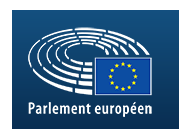Document type : French National Assembly written answer published in the Journal officiel de la République française
Authors: Question: Vincent Descoeur (Les Républicains - Cantal ). Answer: French Ministry of Agriculture and Food
Question: Mr Vincent Descoeur draws the attention of the Minister for Agriculture and Food to the situation of British nationals who own pets and live in France for a large part of the year. Until now, British citizens wishing to travel to France with their pets have had to obtain a European pet passport. However, as a result of the Brexit agreement, since 1 January 2021, the transport of domestic carnivores (dogs, cats, ferrets) requires additional formalities and controls. The owners of such animals must, in fact, before each trip to France, obtain an animal health certificate issued by a veterinarian at least ten days before the date of travel. The cost of these certificates is quite high (approximately 75 euros per animal). Also, for British citizens who own a second home in France and who regularly travel between the two countries, this represents a substantial cost. While the UK meets all the requirements of the European Pet Travel Scheme with one of the most stringent pet control regimes in Europe to protect biosecurity, pet passports should continue to be used between the UK and France so that British pet owners can continue to travel between France and the UK with the same ease as before. He asks what the Government's intentions are on this matter.
Answer: Legislation on non-commercial movements of domestic carnivores from third countries falls under the competence of the European Commission. France, like all other Member States, applies this regulation harmonised at European level. This legislation applies to the United Kingdom, which became a third country on 1 January 2021, in the same way as it does to all third countries who must abide by comparable conditions concerning health. Such conditions result from the will of the United Kingdom not to commit itself to rules whose content and effects follow those prescribed by European regulation, unlike Iceland, Switzerland or Norway who have decided to make such a commitment, thus facilitating the transport of such animals at the border between these countries and the European Union.





